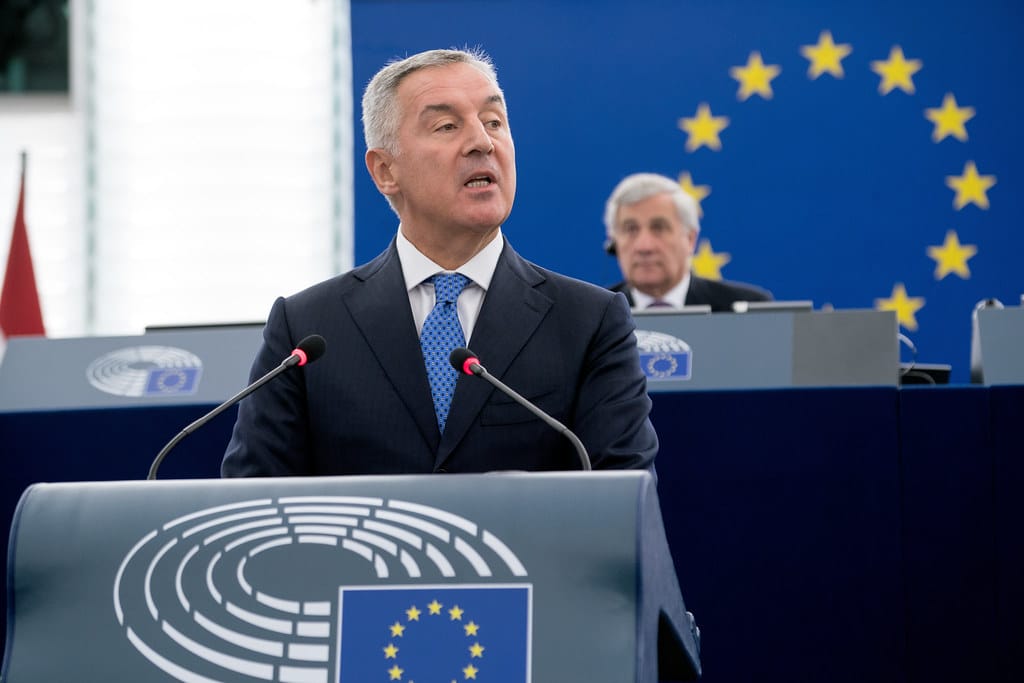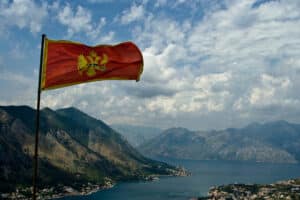After years of economic hardship and insatiable governments, Montenegro is preparing for the presidential elections that will be held this Sunday, March 19 . At stake is the political career of Milo Djukanovic, Montenegro’s political leader for nearly three decades. While the result will be of great symbolical value to the small country on the Adriatic coast, the winner of the election will have little room for maneuvering given Podgorica’s poor economic prospects.
Second round deemed very likely
Among the most promising candidates challenging the incumbent Djukanovic are Andrija Mandic and Aleksa Becic, leaders of the ruling Democratic Front and Democratic Montenegro respectively. Europe Now’s Jakov Milatovic is also seen as a contender. Less likely candidates include Goran Danilovic of the small governing pro-Serb United Montenegro party, opposition Social Democratic Party MP Draginja Vuksanovic Stankovic and influencer Jovan Radulovic Jodzir.
Polls predict a rather tight race on Sunday, probably resulting in a second round to be held after 14 days as the winner needs to reach more than 50% of the votes. According to Milos Besic, a Serbian political science professor, “Djukanovic will surely pass to the second round, while the finish of the campaign will give the answer about which ruling majority candidate will confront the current president”. Besic, furthermore, predicts the battle for second place between Mandic, Becic and Milatovic will come down to a very narrow margin.
So far, the run-up to the presidential election has been marked by accusations of fraud and the threat of cyber-attacks. On 14 March, public prosecutors started an investigation into three presidential candidates for the alleged use of false signatures. The candidates concerned – Danilovic, Stankovic and Jodzir – have all denied the allegations. In Montenegro, a presidential candidate needs at least 8101 supporting signatures to run. Five days later, the Montenegrin public was startled by reports of the governmental cyber security service saying that a cyber-attack is possible during the upcoming election. Although it was added that the service has taken measures against the perceived threat.
Podgorica’s difficult task
Sunday’s main question will be whether Djukanovic can avoid his removal from executive power after a three-decade spell in prominent Montenegrin positions. Ever since Montenegro declared itself independent in 2006, Djukanovic’s Democratic Party of Socialists (DPS) had been involved in governing the tiny country on the Adriatic coast. In the 2020 parliamentary elections, however, a coalition of three multi-party alliances managed to oust the DPS from power, leaving Djukanovic isolated in his ceremonial role as President.
Headed by Zdravko Krivakopic, this uneasy coalition inherited the near impossible task of leading the country out of its economic misery. Combined with the COVID-19 pandemic – which shrunk the economy by 15% – Podgorica is plagued by its dependence on trade and tourism from Russia and a large debt with China. Krivakopic’s government – in the end – survived until January 2022 over a dispute on the influence of the Serbian orthodox church and the handling of Serbian and Russian relations.
Three months after the fall of the Krivakopic cabinet, Dritan Abazovic was elected head of a transitional government with a mandate for one year. This coalition, however, proved to be extremely short-lived after a new dispute on the Serbian orthodox church toppled the government in August 2022.
Between autocracy and democracy
Since its independence in 2006, Montenegro has maintained a mostly liberal and pro-European course. In the area of LGBTI-rights, Montenegro is considered a frontrunner in the Western Balkan region. This is signified by its ranking as 11th out of 48 European countries in the area of LGBTI rights legislation. The same can not be said, however, of women’s rights: the country is lagging behind in legislation and in 2020, 40% of Montenegrin women were unemployed.
While nearly all political parties are in favour of EU-accession, Montenegro is struggling to find its way to candidacy. This is largely due to the remaining influence of oligarchs in the country, as well as a traditionally strong economic bond with Russia. A large debt with China is further hampering economic progress. In 2016, the European Commission released a report stating that Podgorica’s focus should be on the fight against corruption and organised crime in order to be considered a serious candidate. While Sunday’s winner will have limited space for maneuver, a break with Montenegro ‘s traditional oligarchs will be necessary to accomplish some key national priorities around EU-accession.
Author: David Groenen



